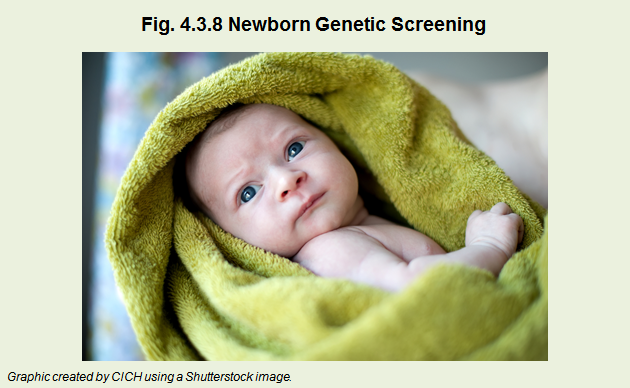Newborn Genetic Screening

…continued
Because of their widespread and well-established success, newborn screening programs have been in existence for over 50 years in Canada and in most western countries. To date, newborn screening has traditionally been limited to diseases for which early detection and treatment offer direct medical benefits for the child. It is typically done by taking a sample of blood from the baby’s heel 24 to 48 hours after birth and placing the droplet on a special filter paper.
Newborn screening is a type of population screening to detect rare and serious conditions that can be easily and hastily treated before serious symptoms occur. Such screening tests can make the difference between healthy infant and child development, or lifelong disability, or even death for the child. continued…
